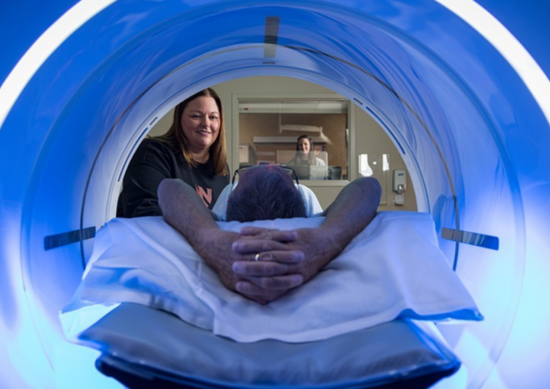
Do you have a patient who is a current or former smoker? Don't wait until it's too late – early detection saves lives! Here is everything you need to know about lung cancer screening.
What is lung cancer screening?
Lung cancer screening uses low-dose computed tomography (LDCT) scans to detect lung nodules in individuals at high risk for lung cancer. These scans can identify cancer at its earliest, most treatable stages, giving patients a fighting chance against this deadly disease.
Why is it important?
Lung cancer is often diagnosed at advanced stages when treatment options are limited. Screening allows for early detection, significantly improving survival rates and treatment outcomes. It's a game changer for those at high risk.
What are the guidelines?
Current guidelines recommend lung cancer screening for individuals who meet the following criteria:
- Are between 50 and 80 years old
- Have a smoking history of 20-pack years or more
- Are current or former smokers (who quit within the past 15 years*)
*Per U.S. Preventative Services Taskforce guidelines. National Comprehensive Cancer Network and American Cancer Society have removed the 15 quit-years guideline (all former smokers who meet other criteria should be screened).
What does the research say?
Studies have shown that lung cancer screening reduces mortality rates by detecting cancer earlier. The National Lung Screening Trial, or NLST, demonstrated a 20% reduction in lung cancer mortality among high-risk individuals who underwent LDCT screening compared to chest X-rays.
What are the risks and benefits?
While lung cancer screening offers significant benefits, it's essential to understand the risks involved. LDCT scans can detect small nodules that may not be cancerous, leading to unnecessary follow-up tests and anxiety. However, the benefits of early detection outweigh these risks for high-risk individuals.
Who should be referred?
If you have patients who meet the screening criteria outlined above, refer them to our lung cancer screening program. Our lung cancer screening clinic offers a comprehensive approach to early detection, integrating shared decision-making visits to ensure informed patient choices and required insurance documentation. Through collaborative discussions, patients receive clear information about the benefits and risks of screening, empowering them to make personalized decisions aligned with their preferences. Our goal is to provide patient-centered care with high-quality screening services, follow up and management of lung nodules, recruitment to research trials and personalized care every step of the way.
Referral information
To refer a patient, call 402.559.5600.
- Shared decision-making visits consist of a telephone call with an advanced practice provider.
- Radiology locations include Fred & Pamela Buffett Cancer Center - Nebraska Medical Center, Fred & Pamela Buffett Cancer Center - Village Pointe Health Center and Fred & Pamela Buffett Cancer Center - Bellevue Medical Center.
- A $200 cash-pay option for LDCT is available to patients.
Contact information

Rachael Schmidt, DNP, APRN, AOCNP
Program Director, Cancer Survivorship and Cancer Risk/Prevention
raschmidt@nebraskamed.com
402.559.1889